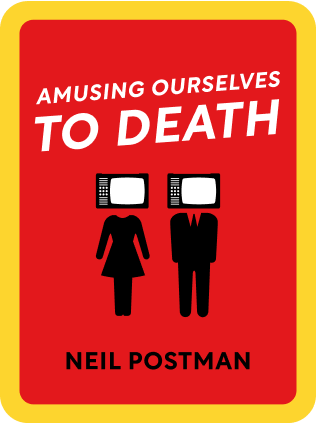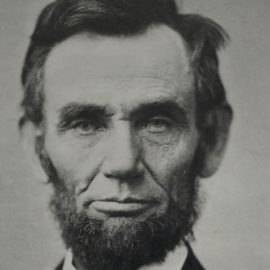

This article is an excerpt from the Shortform book guide to "Amusing Ourselves to Death" by Neil Postman. Shortform has the world's best summaries and analyses of books you should be reading.
Like this article? Sign up for a free trial here .
What were the early hopes for the invention of the television? How did entertainment value slowly replace trustworthiness? Are we amusing ourselves to death?
In his book Amusing Ourselves to Death, Neil Postman discusses the impact that television has had on our society. Postman argues that television directly attacks literacy and suggests that we should judge everything based on entertainment value rather than importance.
Keep reading to learn why Postman believes that we are amusing ourselves to death.
The Entertainment Age
According to Neil Postman in his book Amusing Ourselves to Death, in television’s early stages, some people hoped it could be used to support and extend literacy. However, it was a false hope representing what McLuhan called “rear-view mirror thinking”—viewing new technology as an extension of the old—for instance, thinking of a car as a fast horse or a lightbulb as a stronger candle.
Television doesn’t extend literacy, but it directly attacks it. Unlike reading, television offers a constantly changing spectacle that provides emotional gratification without demanding literacy or any particular thinking skills to understand it.
It’s entertaining, which, again, isn’t a problem in itself—but television goes further to suggest that we should naturally judge everything by its entertainment value. And television presents all content or subject matter as entertainment. This is antithetical to print culture’s treatment of information as rational and having a useful purpose—for instance, action or reflection. So are we amusing ourselves to death? Neil Postman thinks so.
It’s the Image That Counts
Unlike good exposition, which is about communicating ideas, good television is about presenting images. On television, attempted conversations about serious topics are fragmented, shallow, and lack context—even documentaries don’t dwell on a point for long or connect it to what comes next.
For a speaker to pause and think about a point or express uncertainty isn’t a good image and therefore isn’t good television. Television demands a performance that aims for applause, which is the whole point. Content must give way to the values of show business.
Television defines and reflects our culture—we learn what our culture is from television, and we expect life to conform to television. Shakespeare wrote that “all the world’s a stage,” to which television adds, the stage is Las Vegas. Television thus dictates discourse both on- and off-screen.
No Business But Show Business
As print culture once influenced the way we practiced politics, religion, business, and education, television shapes our behavior in those arenas today:
- Instead of talking to each other in school, church, or at work, we entertain each other.
- Instead of exchanging ideas, we exchange images.
- Instead of being persuaded by propositions, we’re persuaded by appearance, celebrity, and commercial messages.
It’s getting harder to determine what’s show business and what isn’t. Teachers perform for students, surgeons perform and narrate surgery for television audiences, and churches “modernize” their services with music and performances.
In the Age of Television, show business or entertainment values drive every form of information exchange. To paraphrase the popular song, “There’s no business but show business.”

———End of Preview———
Like what you just read? Read the rest of the world's best book summary and analysis of Neil Postman's "Amusing Ourselves to Death" at Shortform .
Here's what you'll find in our full Amusing Ourselves to Death summary :
- How television reshaped our culture and trivialized public life by turning it into entertainment
- Why America is moving towards a dystopian, Huxleyan future
- What you can do to gain control over the technology in your life






